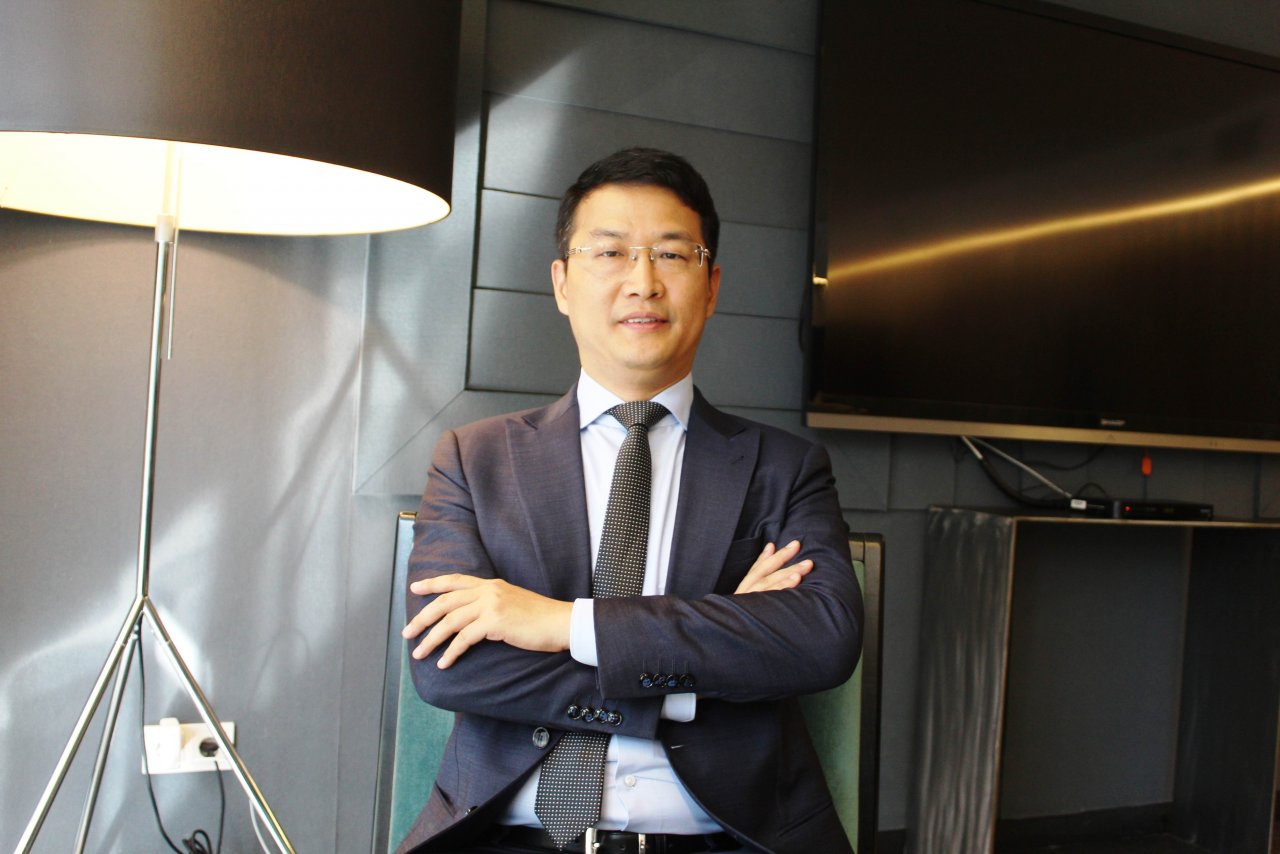Myanmar set for transition to digital economy with corporates’ support
FIVE YEARS after Myanmar’s liberalisation of the telecommunications sector, the nation has now over 50 million mobile subscribers, a figure that almost encompasses its total population, and is set for adoption of digital economy with the help of industry leaders worldwide.
Myo Swe, deputy director general at the Posts and Telecommunications Department, said earlier that Myanmar would strive for enabling digital economy and multi-sectorial digital transformation including digital government, digital community and digital society, ultimately aiming to become the digital hub in Southeast Asia.
The government has a policy goal to ensure that all people in a country have access and are able to use telecommunications services. More people living in rural areas now have access to technical services and applications as well as the capacity to use them.
“Digital society is developing significantly in Myanmar. It is necessary to develop digital society through safe and secure ICT [information and communication technology] infrastructures,” he said.
He said implementation of Myanmar’s e-government was intended to extend utility based on existing resources, for example, e-Government network would be built on existing fiber network along the railway and road.
In a bid to accelerate digital reforms, the government formed the Digital Economy Development Committee in July 2017. Vice President Henry Van Thio leads the committee to integrate all the sectors into the digital economy. It aims to cooperate with international technology firms to create a better economic environment.
Emanuela Lecchi, head of public policy for Asia Pacific at Global System for Mobile Communications, said the organisation would help prepare the nation for the next steps into the future.
“Myanmar has made more rapid progress than perhaps any other country in moving directly from a largely unconnected society into the era of four-generation mobile telephony,” she said.
Toshitake Amamiya, chief executive of MPT, the nation’s leading telecom operator, said earlier that industry players must cooperate with regulators to ensure legislation encourages a sustainable business environment. He said better legislation conducive to the industry and smart funding into key infrastructure and platforms would foster healthy competition.
Telenor
Lars Erik Tellmann, chief executive of Telenor Myanmar, said last month Myanmar’s digital economy has potential for significant growth if the right initiatives are executed.
“Myanmar is well positioned to enter the next phase in realising its digital ambitions,” he said.
Last month, the firm released a report named “Realising Digital Myanmar”, that noted Myanmar’s lack of digital legacy would provide opportunities to learn from other countries and leading technology firms.
James Wu, president for Southeast Asia of China’s Huawei Technologies Co, said at a briefing during the recent Mobile World Congress 2018 that the firm has planned to leverage its resources and technologies for the development of digital economy across the region including Myanmar and Thailand.
Wu said the Chinese giant’s presence in the region for over two decades would play a critical role in the digitalisation of emerging markets, particularly Myanmar that recently embarked on legislative reforms to speed up its digital transformation.
“Digital economy really has different levels, and the first one is building up the digital infrastructure. Given our long-standing experience in Southeast Asia, we do have a very good understanding of the characteristics of digital economy as well as their business behaviours,” he said.
“We are very committed to bring ICT technologies to local societies. That is why we have conducted many training programmes to produce talent in the region. We have contributed to technology and talent development in collaboration with local partners, for example, in Thailand we are providing recommendations to the government. We also provide the digital economy white paper to the government.”
Wu said the firm could help the government with building up the digital infrastructure and strengthening legal framework to encourage digitalisation. The firm has provided a number of training programmes to government officials and service staff in Myanmar. He foresees deployment of fifth generation (5G) in Southeast Asia including Myanmar over the next three years.
“We have invested over US$600 million in research and development on 5G. We now have full range commercial 5G equipment including wireless access network, transport network and CPE (customer premises equipments). We will bring forward the commercialisation of NB-IoT (narrowband internet of things), serving over 100 million subscribers around the world,” he said.
Wu said the firm has made solid foundation for commercial application of 5G, as its standards for 5G were finalised in late 2017.
Source: http://www.nationmultimedia.com/detail/Economy/30340160


 English
English




